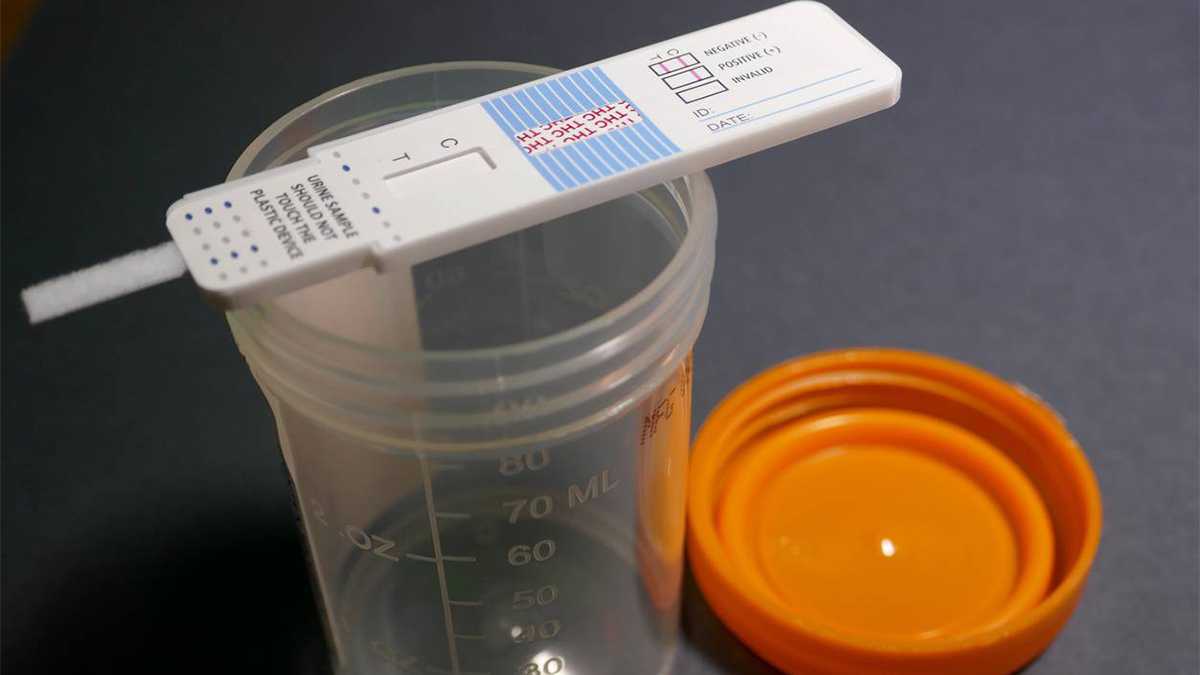How Accurate Are Home Drug Tests for THC?

Home drug tests have been on pharmacy shelves for decades.
The first home urine tests were approved by the Food and Drug Administration (FDA) in the mid-1990s, and drug tests that could be done with just a strand of hair soon followed.
Today, there’s an enormous variety of home testing kits for sale at drug stores, at big-box retailers, and on the Internet. Some screen just for one substance, like marijuana. Others test for as many as 14 different drugs, from weed and coke to meth and opioids. Modern home tests are much cheaper than their predecessors, too. A home THC test, for example, may cost less than ten bucks.
Who would buy a home drug test?
They were originally marketed to parents who were worried about their kids’ possible drug use. Naturally, some parents still buy test kits for the same reason. But there’s a much bigger market for home THC tests: people who are facing a pre-employment drug test, and those who are subjected to regular testing at work.
A home drug test lets those people find out whether they’re going to come up dirty before their job is on the line.
Or does it? Exactly how accurate are home THC tests? Can you rely on their results?
Let’s find out.
How THC Drug Tests Work
Evidence of prior drug use accumulates throughout the body, and there are several ways to search for it. Different test methods analyze urine, saliva, blood, or strands of hair, and register the presence of drugs or their metabolites.
More than 90% of employers choose to use urine tests, for three reasons. The tests are inexpensive, they’re easy to conduct, and they can often detect most people’s marijuana use during the past 30 days. In heavy users who smoke daily, the tests are even more telling; evidence of their weed use may even show up several months later. Occasional users are more fortunate since they’ll probably only test dirty for a few days after they’ve indulged.
The other forms of testing each have drawbacks.
- Saliva tests are the second-most commonly used since they’re less “invasive” than other methods of testing. They can only detect THC use over the past three days, though, and they’re the least reliable.
- Blood tests are the most reliable way to test for on-the-job weed use, but they’re expensive and invasive. They’re rarely used for pre-employment testing because they only can detect THC use over the past week, at most.
- Hair tests, administered on a strand of hair taken from the person being checked for pot use, measure residues that have accumulated over 1-3 months. But they’re also invasive and quite expensive.
There’s another big difference between the tests.
Blood and saliva tests detect the presence of THC, which is why their “effective” time is relatively short. THC only stays in the body for a matter of days.
Urine and hair tests, by contrast, detect the presence of a non-psychoactive cannabis metabolite known as THC-COOH – and it takes much longer for the body to eliminate THC-COOH. That’s why urine tests are the best method for detecting weed use over the past weeks, and hair tests are the best – if companies are willing to pay the extra cost – for detecting it over several months.
Comparing Home THC Tests with Laboratory Tests
Small businesses may use over-the-counter urine tests that don’t require laboratory analysis. Larger companies, though, will usually send the samples they collect to a lab or have their employees go straight to a lab facility for testing.
Those whose employers use drugstore THC tests should consider themselves lucky. There’s a greater chance of coming up positive for THC on a lab test than there is on a home THC test.
There are many reasons for that.
The key difference is that labs use experienced personnel and sophisticated equipment, and may employ the “gold standard” of drug testing. It’s called gas chromatography-mass spectrometry (GC/MS), and involves a rigorous examination of samples that show initial signs of a drug metabolite. In some labs, a supervisor may review positive tests to confirm the results, and the best laboratories are government-regulated.
Home tests simply use test strips containing a chemical reagent, which turns color to indicate a positive result.
Additionally, home tests don’t have “cut-off” levels. Labs use them to eliminate positive tests caused by issues like inhalation of second-hand smoke (or, if you believe the wives’ tale, consuming poppy seeds). And home THC tests aren’t able to detect how recently use occurred, or whether someone is a heavy or light user. Labs often make those distinctions.
There are other issues that may cause home THC tests to register false positives, too.
- Over-the-counter or prescription drugs may affect a home test’s reliability.
- Food or drink consumed before the test can also affect its results.
- Samples may be improperly collected or stored.
- Home tests may not detect use just before the sample is taken, or use that occurred more than seven days earlier.
- The test kit may be used after its expiration date.
Here’s what all of that means.
How Accurate Are Home THC Tests?

Manufacturers often claim that their tests are 99% accurate. That might be true, under ideal circumstances.
But testing yourself in your bathroom, or providing your employer with a urine sample taken in the employee restroom, is far from ideal – and the test may still come up with a false positive due to second-hand smoke exposure or something you’ve recently consumed. On the other hand, it may show a false negative, if the kit is expired or the test is done incorrectly.
The bottom line is that home THC tests are relatively accurate, but they’re no match for a laboratory test. In other words, don’t depend on one of those test strips to predict what will happen when you go in for a drug test at work.
So Are Home THC Tests Useless?
Not completely.
Many home THC testing kits give you the option to send your sample to a lab for further analysis. That’s still no guarantee of accuracy because the lab results still depend on whether you collected and stored the urine properly. However, having the pros check your test can give you a greater sense of relief (or concern).
The best approach is to use common sense.
If you’re a regular smoker, don’t be surprised if your home THC test comes up positive. If it comes up negative, though, take the results with a very large grain of salt and don’t get overconfident before your “real” test.
If you only had a few tokes a few weeks ago or were simply in a room filled with pot smoke, don’t be surprised if your test is negative. That’s to be expected. If it comes up positive, you may want to send the sample to a lab to be double-checked.
What to Do If Your Test Is Positive
If you come up positive on a home THC test – and you’re pretty sure the results are legitimate – the best approach is to see if you can postpone your real test for a few weeks while you detox.
That’s usually not possible. In that case, you can try some of the time-honored methods to try beating a urine test for weed.
- Drink lots and lots of water (and take some vitamin B, so the urine still has the right color).
- Wait until the middle of the day to provide a sample; urine is most concentrated early in the morning.
- Similarly, take the sample from the “middle” of your urine stream. It will be more concentrated at the start.
- Don’t exercise for a day or two before the test, because exertion can cause extra metabolites to be released from fat cells.
And if you believe that one of the many “detox regimens” you’ve heard about friends or seen online might work, feel free – as long as it doesn’t involve something dangerous like drinking bleach or taking niacin supplements.
Home THC tests won’t tell you whether you’ll pass your employer’s drug test. But they can give you a good idea of whether you might be facing a big problem, and they might give you enough time to do something about it.
How Accurate are Home THC Tests? FAQ
Q: Are some home THC tests more accurate than others?
A: Of course. Some brands are always better than others, no matter what product you’re buying. Look for home testing kits that are FDA-approved, since they’ll have undergone their own rigorous testing. Green Gone Detox, Easy@Home, and Clear Choice are some of the top-rated home drug testing kits.
Q: How can I be sure that I’m using a home test correctly?
A: Read the instructions, of course. But also check the kit’s “use by” date to make sure it hasn’t expired, don’t do the test early in the morning, collect the sample in a warm environment (the urine itself should register a temperature between 90° and 100°), and take the sample from the middle of the stream, not when it first starts.
Q: Should I use a kit that tests for multiple substances, or one that just tests for THC?
A: It depends – have you been a good boy or girl? If you’re not worried about any other drug use showing up on the test, a dedicated home THC test is probably your best choice; otherwise, a kit that checks for 12 or 14 different drugs may be useful for your circumstances.